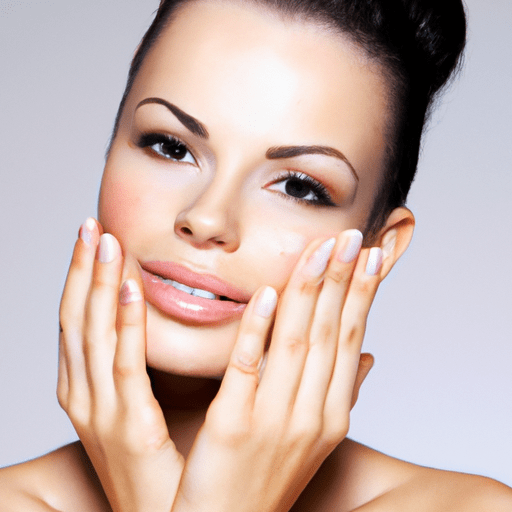If you’ve ever wondered about the possible link between vitamin B and acne, you’re not alone. Many individuals have questioned whether their daily dosage of vitamin B could be contributing to unwanted breakouts. In this article, we will explore the relationship between vitamin B and acne, examining the available research and shedding light on this commonly debated topic. So, if you’re curious to know if your vitamin B intake could be impacting your skin, keep reading to uncover the truth.

Overview of Vitamin B
Vitamin B is a group of water-soluble vitamins that play a crucial role in various bodily functions. The different types of Vitamin B include B1 (Thiamine), B2 (Riboflavin), B3 (Niacin), B5 (Pantothenic Acid), B6 (Pyridoxine), B7 (Biotin), B9 (Folate/Folic Acid), and B12 (Cobalamin). Each type has its unique functions and benefits for the body. From maintaining healthy skin to supporting energy production, Vitamin B is essential for overall well-being.
Understanding Acne
Acne is a common skin condition that affects people of all ages. It is characterized by the presence of pimples, blackheads, whiteheads, and inflamed lesions on the skin. Acne typically occurs when the hair follicles are clogged with oil and dead skin cells, leading to the growth of bacteria and inflammation. While acne can be frustrating and impact one’s self-esteem, it is important to understand its causes and factors influencing its development.
The Relationship Between Vitamin B and Acne
There have been claims suggesting a link between Vitamin B and acne. Some individuals report experiencing increased acne breakouts after consuming certain types of Vitamin B supplements or foods rich in Vitamin B. However, it is essential to examine the mechanisms proposed for Vitamin B-induced acne and consider the contradictory studies and lack of conclusive evidence in this area.
Vitamin B Types and Their Potential Effects on Acne
Each type of Vitamin B may have different potential effects on acne:
Vitamin B1 (Thiamine)
Thiamine is essential for maintaining healthy skin, but there is no direct evidence linking it to acne development or improvement.
Vitamin B2 (Riboflavin)
Riboflavin plays a role in skin health and may potentially help reduce inflammation associated with acne. However, further research is needed to establish a clear connection.
Vitamin B3 (Niacin)
Niacin has been found to have anti-inflammatory properties and may contribute to the management of acne symptoms. However, more studies are required to confirm its effectiveness.
Vitamin B5 (Pantothenic Acid)
Pantothenic acid is often marketed as a potential acne treatment. Some studies suggest that it may help reduce acne lesions, but more research is needed for conclusive evidence.
Vitamin B6 (Pyridoxine)
Pyridoxine has been proposed to influence hormone regulation, which can impact acne development. However, the evidence is limited and inconsistent at this time.
Vitamin B7 (Biotin)
Biotin is a popular supplement known for promoting hair and nail health. However, there is limited evidence linking biotin to acne development.
Vitamin B9 (Folate/Folic Acid)
Folate is essential for cell growth and development, but its connection to acne is still not well-established. Further research is necessary to determine any potential effects.
Vitamin B12 (Cobalamin)
Cobalamin is known to play a role in skin health, but high doses of Vitamin B12 may potentially aggravate acne symptoms in some individuals. However, more research is needed to reach a conclusive understanding.
Multi-B Complex Supplements
Multi-B complex supplements contain various types of Vitamin B in combination. The effects of these supplements on acne vary depending on the specific formulation.

Research Studies Investigating the Link between Vitamin B and Acne
Several studies have explored the potential link between Vitamin B and acne. It is important to evaluate these studies to gain a comprehensive understanding.
Study 1: Findings and Conclusions
One study found a positive association between Vitamin B12 levels and acne severity in a small group of participants. However, the study had limitations, such as a small sample size and potential confounding factors that could have influenced the results.
Study 2: Findings and Conclusions
Another study investigated the effects of Vitamin B5 supplementation on acne. The results showed a reduction in acne lesions, but the study design and sample size were not sufficient to draw definitive conclusions.
Study 3: Findings and Conclusions
A different study examined the impact of B6 supplementation on acne symptoms. The findings did not show a significant improvement in acne severity, suggesting that B6 may not have a strong effect on acne management.
Other Factors Contributing to Acne Development
While the potential role of Vitamin B in acne development is still not fully understood, it is important to consider other factors that can contribute to acne:
Hormonal Fluctuations
Hormonal changes, particularly during puberty or menstruation, can influence acne development. Fluctuations in hormones such as testosterone and estrogen can increase oil production and lead to clogged pores.
Dietary Factors
Dietary choices, such as consuming a high-glycemic diet or dairy products, have been associated with increased acne risk in some individuals. However, the relationship between diet and acne is complex and varies from person to person.
Stress and Lifestyle
Stress and certain lifestyle factors, such as lack of sleep or poor skincare routines, can contribute to acne development or exacerbation. Managing stress levels and adopting healthy lifestyle habits can help improve overall skin health.
Genetics and Family History
Genetics play a role in acne susceptibility. If your family has a history of acne, you may be more prone to developing it. However, genetic predisposition does not guarantee acne development.
Skin Care Routine
Using harsh or pore-clogging skincare products can worsen acne. It is important to choose non-comedogenic products and follow a gentle skincare routine that includes cleansing, exfoliating, and moisturizing.
Tips for Managing Acne
Managing acne involves adopting healthy habits and following a comprehensive skincare routine. Here are some tips:
Maintaining Good Hygiene
Cleanse your face twice daily with a mild cleanser to remove excess oil and impurities. Avoid excessive scrubbing, as it can irritate the skin and worsen acne.
Following a Balanced Diet
Eat a well-balanced diet rich in fruits, vegetables, whole grains, and lean proteins. Limit your intake of sugary and processed foods, as they may exacerbate acne symptoms in some individuals.
Avoiding Specific Triggers
Identify and avoid potential triggers that worsen your acne. This may include certain foods, cosmetics, or environmental factors such as humidity or pollution.
Using Suitable Skincare Products
Choose skincare products specifically formulated for acne-prone skin. Look for ingredients like salicylic acid or benzoyl peroxide, known for their effectiveness in treating acne. Remember to moisturize to keep the skin hydrated.
Consulting a Dermatologist
If over-the-counter treatments and home remedies do not improve your acne, it is advisable to consult a dermatologist. They can assess your individual situation, recommend appropriate treatments, and provide personalized advice.
Signs that Vitamin B Might Aggravate Acne
Worsening of Acne Symptoms
If you notice a significant increase in acne breakouts or severity after starting Vitamin B supplementation, it may indicate a potential connection between the two. Monitoring changes in your acne patterns can help identify any correlations.
Skin Reactions after Vitamin B Intake
Some individuals may experience skin reactions, such as rashes or irritation, after consuming Vitamin B supplements. If these reactions coincide with worsening acne symptoms, it may suggest a possible aggravation of acne due to Vitamin B intake.
Monitoring Changes in Acne Patterns
If you have been consistently taking Vitamin B supplements, and there is a noticeable change in the location, frequency, or intensity of your acne breakouts, it might be worth investigating the potential role of Vitamin B in acne development.
Individual Experiences and Anecdotal Evidence
There are anecdotal reports suggesting that some individuals experience worsened acne symptoms after consuming certain types of Vitamin B supplements. On the other hand, there are also contrasting experiences reporting improvement in acne with Vitamin B consumption. However, it is important to note that anecdotal evidence should not be solely relied upon as it lacks scientific rigor and may not apply to everyone.
Consulting a Healthcare Professional
When it comes to addressing concerns about the potential relationship between Vitamin B and acne, it is always recommended to seek guidance from a healthcare professional. They can provide accurate and personalized advice based on your specific situation. A healthcare professional can also help evaluate the risks and benefits of Vitamin B supplementation and offer recommendations for managing acne effectively.
Conclusion -Does Vitamin B Cause Acne
In conclusion, the relationship between Vitamin B and acne is complex and still not fully understood. While some studies suggest potential links between certain types of Vitamin B and acne development or improvement, conflicting studies and lack of conclusive evidence make it challenging to draw definitive conclusions. It is important to consider various factors contributing to acne, such as hormonal fluctuations, dietary choices, stress, genetics, and skincare routine. Adopting a comprehensive approach that includes maintaining good hygiene, following a balanced diet, and using suitable skincare products can help manage acne effectively. If you have concerns or experience significant changes in acne symptoms after consuming Vitamin B, it is advisable to consult a healthcare professional for personalized assessment and guidance.




